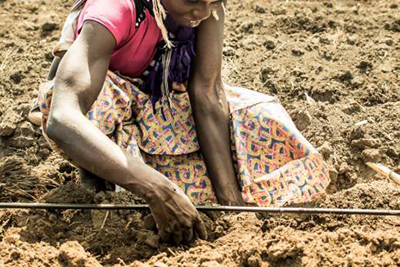
CBSPs are rural entrepreneurs who purchase seed from seed companies for resale in their own communities, thus bridging the gap between seed/input suppliers and smallholder farmers and reducing the high distribution costs involved in making products available to Bottom of the Pyramid (BOP) consumers.
The aim of this project was to support both firms in profitably breaking into the smallholder seeds markets in northern and central Mozambique through the development of their own CBSP sales and distribution systems, and to support them in selling certified seed to at least 12,000 smallholder farmers.
Although by no means the first agrodealer-related initiative in Mozambique, SEEDS was innovative in its approach and methodology and has paved the way for future agrodealer-based interventions. The project promoted the marketing and distribution of seed not as a specialized product but as a household necessity in rural communities. Furthermore, the project drew from an existing network of rural microenterprises, resulting in the establishment of a seed distribution network unaffected by seasonality. Seed is sold along with other product lines that small shop owners are already profitably trading in their communities.
The project found that farmers will invest in buying certified seed, if two critical elements are addressed: distribution and demonstration.
The project found that farmers will invest in buying certified seed, if two critical elements are addressed: distribution and demonstration. Unlike many other interventions, the SEEDS project tackled both of these simultaneously. Distribution was addressed through smart incentives that bought down the risk for the private sector to establish hub-and-spoke networks, while demonstration was tackled by CBSPs doubling as Lead Farmers managing their own demonstration fields, or by establishing small demonstration plots beside their stores. The project also found that supported rural entrepreneurs viewed seed sales as a viable business and were eager to engage in commercial relationships with private sector input suppliers.
Learn more about this project and similar initiatives in Feed the Future’s Partnership for Innovation’s report, Bringing Seeds to Market: A Study of Partnerships Commercializing Seed Technologies in the Smallholder Farmer Market.
—This article was first published by USAID’s Marketlinks blog.


